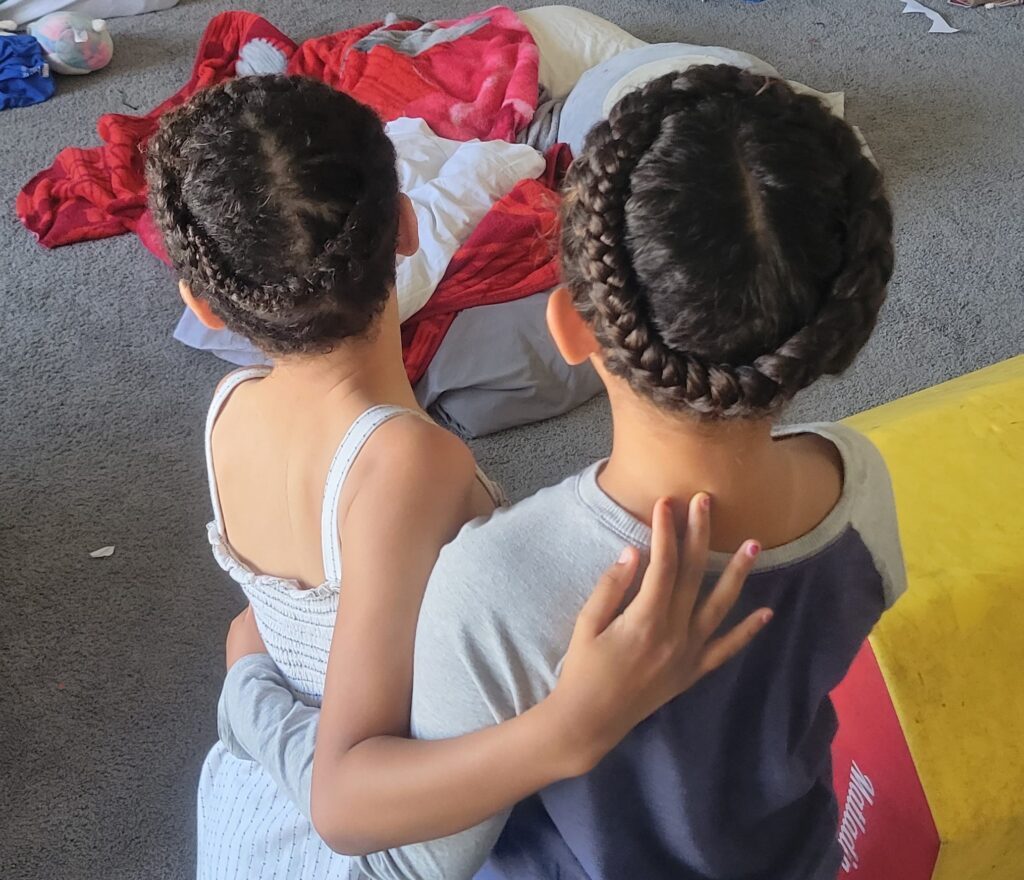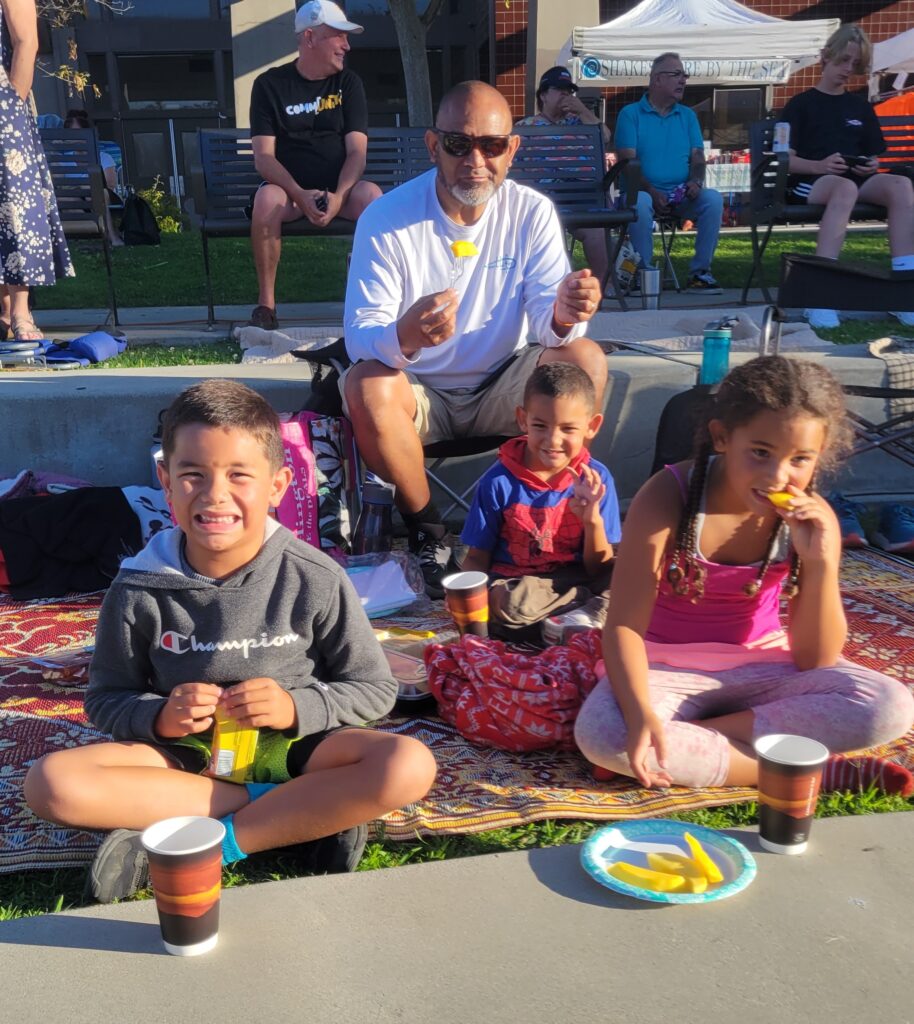Recently a friend of mine started working through a difficult grief journey, and she sent me an episode from The Place We Find Ourselves that she thought would help the process. I was happy to listen to it to help her, but as the episode progressed, I was deeply impacted and remember thinking, “I was just listening to this for my friend. I was not trying to do my own internal work!” After that very surprising first listen, she recommended I start the podcast from Episode 1. Working through the podcast has certainly been a confusing, contradictory, and emotionally challenging journey. Even now, I’m not sure how to see or respond to my stories; however there are a few lessons I have learned to help my children.
Hold Sacred the Opportunity to Apologize
Adam Young, the podcast host, said in an episode that he knew he had made huge mistakes as a parent, but that when his children came to him to point out those mistakes, he would hold that moment as sacred. This phrase has stuck in my mind in a way that few other statements have. It’s a turn of phrase that makes these moments turning points for my kids. In these moments, I can revere the opportunity to reconcile a rupture in our relationship, I can flippantly apologize so that they will leave me alone, or even worse, I can try to justify my actions so that I convince myself I don’t have to apologize.
He was talking about opportunities that will arise in the future, perhaps when his children were adults, but I got a chance to practice much sooner than that. One of Ana Lia’s friends was staying with us, and they wanted their hair braided in the same way. Her friend sat down to get her hair braided first and sat quietly the whole time I was braiding. Ana Lia sat down and as soon as I started parting it, she yelped in pain; and my response was, “She sat here the whole time without making a sound, and I cannot even get started on yours before you’re giving me a hard time.” As I kept working, Ana Lia spoke up in a small voice and said, “Mama, when you said that about me shouting, it hurt my feelings.”

Even though I had completely blown it by making fun of my daughter in front of her friend and getting frustrated with her for what seemed like an inconvenience, I suddenly had the opportunity to hold sacred one of these moments. I paused braiding, leaned into her ear, and whispered, “My love, I am so sorry I hurt your feelings. Those were not words that built you up. Will you please forgive me?” She forgave me, and I squeezed her tightly and resumed her braid. My goal is to always respond to these moments in a way that encourages them to come back the next time, building intrinsic memories that I am a safe place to come with hard things to say.
Children Want Their Feelings to Be Felt
The other parenting lesson I learned was that children want their feelings to be felt. This podcast was the first time I have heard it said this way even though I have been immersed in the gentle parenting movement for several years. I have heard many times the importance of getting on the same physical level with a child, holding them close, and acknowledging their big feelings. My kids are able to identify many feelings I didn’t learn to identify until I was married and almost 30. But the idea that kids want their feelings felt was new to me.
For example, when a child is sad, they want us to communicate that we feel their sadness. Recently, I have had to change some of Ana Lia’s diet because she was having tummy issues, and she strongly disliked some of the additions. One day, she was crying because of what she had to eat. Normally, I would have chastized her and told her that it was only a little bit, that she was making such a big deal out of nothing. This would have inevitably led to a drawn out emotional battle about her food, which is one of my nightmares. I never wanted to be arguing with my kids about what they ate or forcing them to eat food they didn’t want. I knelt down, lowered my voice and said, “I’m so sorry. I’m sorry your tummy isn’t working the way everyone else’s is and that you need to eat food to make that better. I understand that you are sad, but I do want you to know that I am only doing this to help your stomach pain go away.” After a long hug, she promptly went to sit at the table and finished her snack.
As effective as this was in the moment, I am also aware that doing “the right” thing in the moment does not always smooth the situation, calm the tantrum, or end the feelings. For years, I fulfilled every parenting recommendation, and my youngest would scream at me for hours. So, please don’t buy into the belief that you are a failure in the times that it doesn’t work this easily. But also hold onto the hope that allowing your child’s feelings to be felt will build a safe connection for future ruptures.

Looking for Someone Looking for Us
A refain that Adam Young says in several episodes is that we walk through our lives looking for someone who is looking for us. I have decided to be that person for my children each day. When they walk into the living room in the mornings, I smile and enthusiastically tell them “Good morning!” I ask if they slept well and if they want to tell me their dreams. I stop work, and go to cuddle on the couch with them even if only for five minutes. When I pick them up from Children’s Ministry after church on Sundays, I mentally prepare myself during the walk to smile brightly and engage them about the myriad crafts they inevitably shove toward me. I want them to know that I am the person looking for them, so they don’t have to be in an unending search for one.
Having said that, it’s important to note that my husband embodies this deeply and does it all without the conscious effort that I require. He lights up when he sees his kids and struggles when he goes a day without them; so they are certainly getting that need met from him, but I want to be intentional about ensuring that they also get it from me.
Conclusion
This podcast is not mainly, or even mostly, about parenting your children. Like I said in the beginning, I am still working on what it means for me personally, but these lessons for parenting were immediately clear and practically implementable. So these were the ones I chose first.